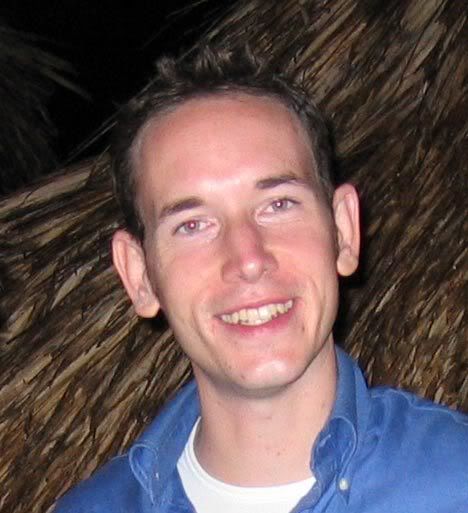Na degite be nuedi (whattup! ...in Kuna)

Exhibiting one of the most vibrant indigenous cultures in Latin America, the Kuna are an interesting bunch. Most of them live in the amazing San Blas comarca- a semi-autonomous archipelago of nearly 400 idyllic islands - after winning a revolt against the Republic of Panama in 1925. Other Kunas headed to the main-land and carved out niches in and around Panama City.

They have done a great job maintaining their traditions, but the funny thing is, even though they average about 5' in height, basketball is one of their favorite sports. After being the first person cut from the 10th grade b-ball team, I can finally redeem myself and show the world my skills, so I'm trying out for the team. I hope to one day open up a pack of Kuna basketball cards and find me featured as the giant 5'8" starting center - "the great white hope."
For some unknown reason, the Kunas also have the highest rate of albinism. And, no joke, lovingly refer to their albino brethren as "moon children." Finally, I'll meet somebody pastier than me.
I've heard that although many Kunas rely on tourism and selling their handicrafts for income, they are pretty inclusive and tend to be wary of outsiders. That's surprising, since they really were inviting when a local non-profit organization recently placed me in a Kuna village to teach English to about 15 bright-eyed Kuna kids. Check out my tiny group below.
I started the job a few weeks ago and have been taking the hour-long trip on the local painted cheese wagons to the Arraijan community (funny side note - local legend says the town got its name from a mangling of English. When the U.S. controlled the canal, Americans were asked where for directions to this place, they'd say you'd find it on the right hand side of the road. So, "on the right hand " stuck, but in a garbled form of "ar -rai - jan.)"

The kids range in age from 5 to 15 years old who all attend class together.
It's a very humble but functional setup - one tiny classroom in what I think used to be the dining room of a Kuna home, as seen on top right in this picture.

On the first day, after we played a couple get-to-know-you games, I started teaching them some animals in English. I was showing them a flashcard of an elephant and asked them what kind of animal it was. One kid started yelling "monkey! monkey!" I thought I might have to put this kid in the "special" class until I realized he was pointing to our new student that dropped on by.

Out of the blue, this monkey showed up between the stone wall and the tin roof and hung out with us for a bit. Not surprisingly, "monkey" was about the only word they learned.





